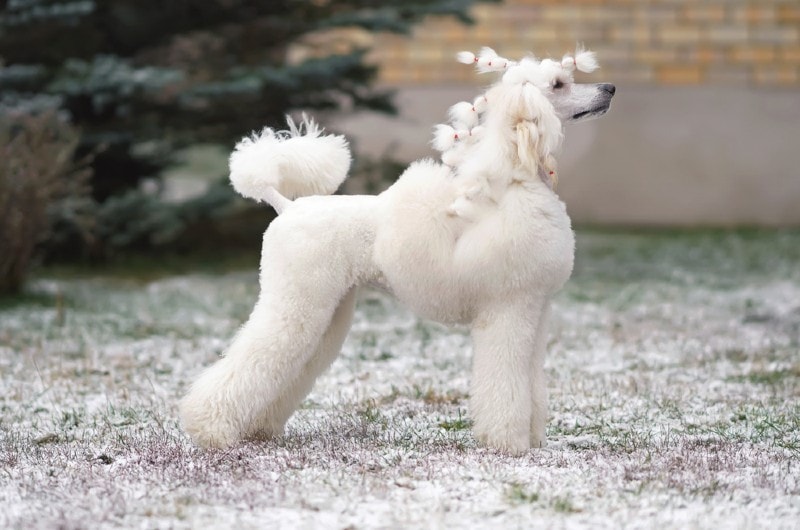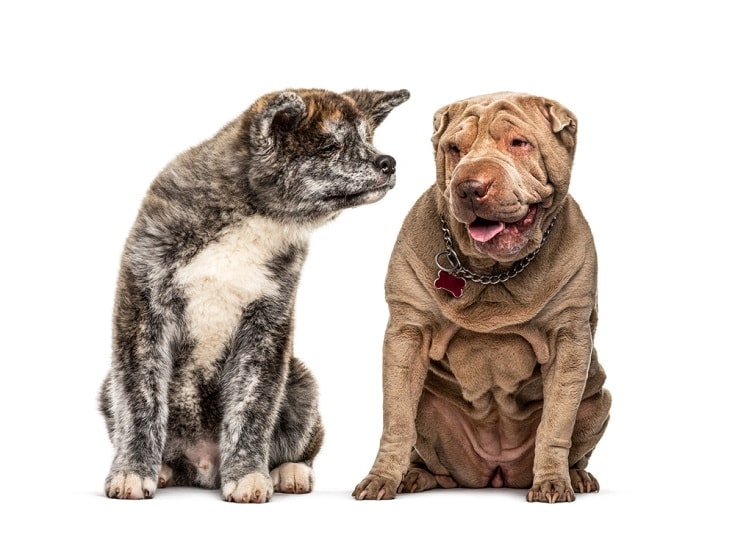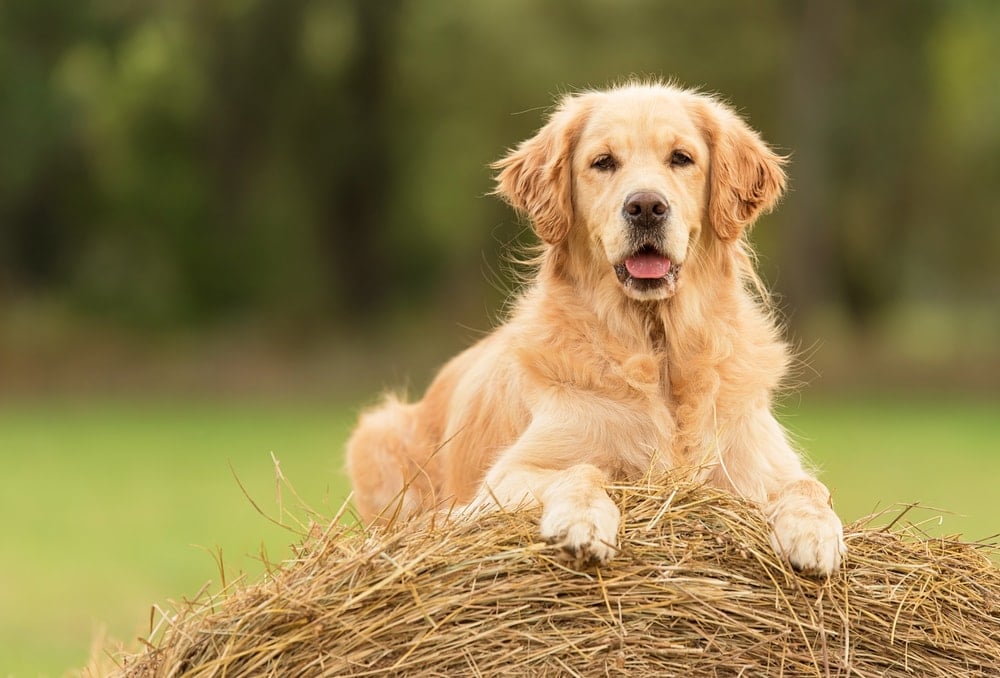Can Dogs Eat Grilled Cheese? Vet-Verified Health Concerns
By Hanh Duong
Updated on

Click to Skip Ahead
Are you a dog owner who enjoys sharing your food with your best furry friend? If so, you may wonder if your pup can indulge in grilled cheese occasionally. While it’s true that dogs can eat many of the same foods as humans, not all human foods are safe or healthy for them. So, before you break off a piece of your next grilled cheese sandwich to share with your pup, let’s look closer at the nutritional value and potential risks.
Unfortunately, it’s not a good idea to make grilled cheese a regular part of your dog’s diet. High levels of fat and calories in grilled cheese can lead to weight gain and other health issues.
Why Shouldn’t Dogs Eat Grilled Cheese?
Cheese and white bread, commonly found in grilled cheese sandwiches, are not the best treat for your furry friend. As difficult as it may be to resist those puppy eyes begging for a bite, these cheesy treats can cause gastrointestinal distress for your dog. Additionally, the carbs and fats in grilled cheese can lead to unwanted weight gain if consumed regularly over time. Although cheese does contain some calcium, it doesn’t offer much nutritional value for your pup.

The Dangers of Giving Your Dog Grilled Cheese
- Weight gain: Regularly feeding your dog grilled cheese could lead to weight gain due to its high calorie and fat content.
- Pancreatitis: Dogs can get pancreatitis, and overeating fat may be one of the causes. Since grilled cheese is a high-fat food, it can increase the risk of your pet developing this condition.
- Stomach upset: Grilled cheese might be hard to digest for some dogs, particularly those who aren’t used to eating human food. This might result in stomach discomfort, diarrhea, and vomiting.
- Lactose intolerance: Some dogs are lactose intolerant, meaning they have difficulty digesting milk and other dairy products. Grilled cheese can cause lactose-intolerant dogs to experience diarrhea, vomiting, and gas.
Just like humans, dogs have different levels of tolerance when it comes to certain foods. While some pups may be able to handle the occasional indulgence of grilled cheese without issue, others may experience negative effects even with just a tiny amount.
What Kind of Homemade Treats Are Good for Dogs?
If you’re a dog owner, making your furry friend’s snacks from scratch is not only fun but also a great way to ensure they’re getting the best ingredients. You probably already have the necessary elements in your kitchen. Want to add some extra flavor and nutrients? Try peanut butter (just make sure it’s free of artificial sweeteners like xylitol), apple slices, pureed pumpkin, carrots, and blueberries.

Conclusion
Grilled cheese is not toxic to dogs, but too much of it can lead to weight gain and other health problems. While a small amount may not do any harm, it’s best left off your pup’s menu.
There are many healthier and more satisfying alternatives to grilled cheese for your furry friend. Keep your pup happy and healthy with some tasty treats they’ll love!
Featured Image Credit: George Dolgikh, Shutterstock













